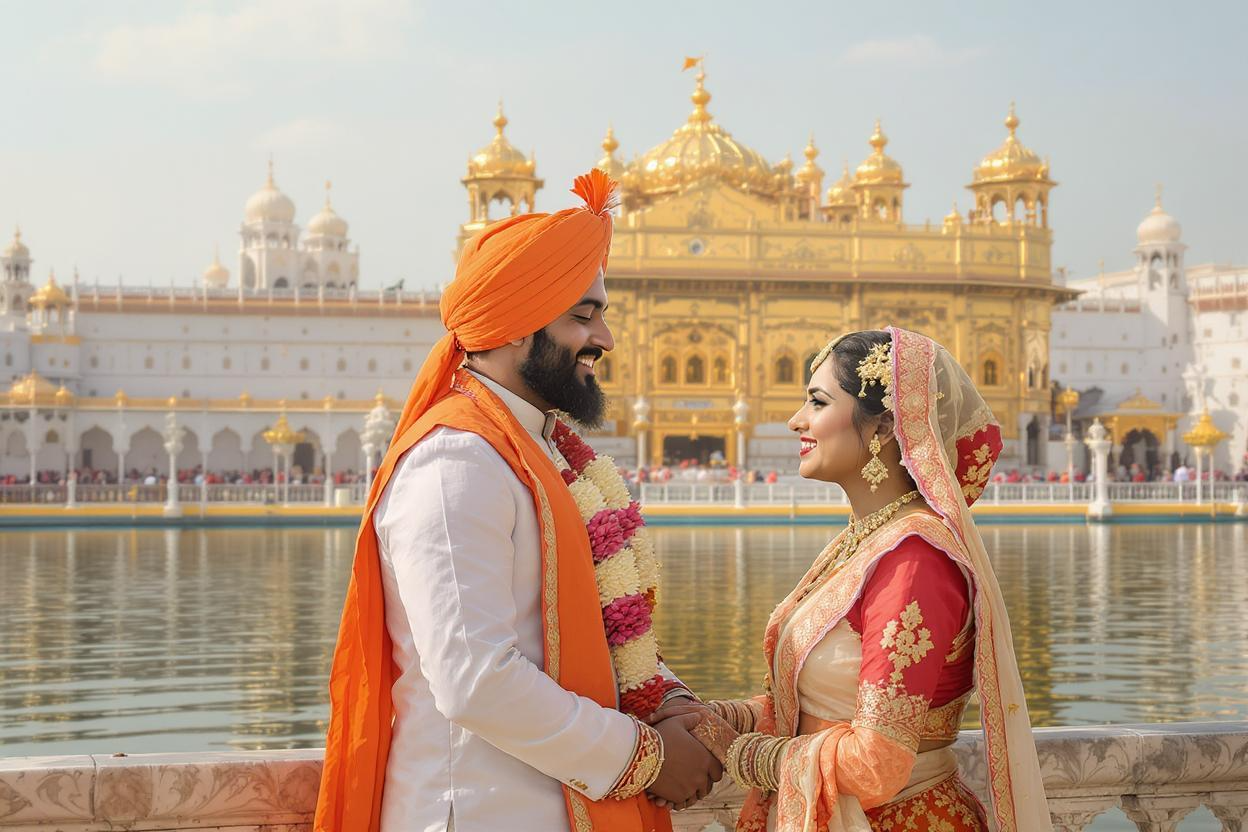For Gursikh families, marriage is not just a union of two individuals but a sacred bond blessed by the Guru Granth Sahib Ji. Your Sikh marriage biodata serves as more than an introduction—it reflects your Sikhi, values, and commitment to the Guru's teachings. This guide will help you create a biodata that honors Sikh traditions while appealing to families seeking a spiritually aligned match.
- Guru Amar Das Ji (Ang 788, Guru Granth Sahib)

1. Begin With Your Sikhi Journey
Your opening should reflect your relationship with Sikhi. Consider starting with a Gurbani quote or sharing your Sikh upbringing:
Example Introduction:
"Waheguru Ji Ka Khalsa, Waheguru Ji Ki Fateh. As an Amritdhari Sikh, I strive to live by the Guru's teachings daily. My family comes from a proud Sikh heritage tracing back to the times of Guru Gobind Singh Ji in Anandpur Sahib. I seek a partner who shares this deep reverence for our Gurus and commitment to Sikhi."
2. Highlight Key Sikh Attributes
Gursikh families will look for these essential elements in your biodata:
- Rehit Maryada: Your adherence to Sikh code of conduct
- Amrit Sanchar: Whether you've taken Amrit
- Nitnem: Your daily prayer routine
- Gurdwara Involvement: Seva activities and participation
- Sikh Education: Knowledge of Gurbani and Sikh history
- Kesh/Kakkar: Commitment to maintaining the Five Ks
Gursikh Tip: Be truthful about your level of Sikhi practice. Whether you're newly exploring the faith or come from generations of Amritdhari Sikhs, honesty helps find compatible matches.
3. Showcase Sikh Values in Personal Details
When describing education, career, and hobbies, highlight Sikh principles:
Example Personal Section:
Education: Graduated from Khalsa College with degree in Sikh Studies
Career: Pharmacist - serving the Sangat while upholding Sikh ethics in healthcare
Hobbies: Kirtan (play harmonium at local Gurdwara), Gatka practice, Punjabi poetry
Seva: Volunteer with Khalsa Aid during disaster relief efforts

4. Family Background with Sikh Context
Sikh marriages often consider family heritage. Include:
- Family's historical connection to Sikhi (e.g., ancestral village near Sikh historical sites)
- Family's involvement in Sikh institutions or organizations
- Notable Sikh ancestors or relatives
- Family's participation in Sikh events (Nagarkirtan, Gurpurabs)
5. Expectations for a Sikh Partner
Clearly express what you seek in a partner regarding Sikhi:
- Level of religious observance expected
- Views on raising children as Sikhs
- Preferences regarding Amritdhari status
- Expectations for joint spiritual practices
Remember: Your Sikh marriage biodata should reflect both your personal journey with the Guru and your vision for a Gurmat-inspired marriage. Include an Ardas that your biodata helps you find the right life partner who will walk with you on the path of Sikhi.
6. Design Elements That Honor Sikh Tradition
When using our Sikh Marriage Biodata Maker, consider these culturally appropriate design choices:
- Subtle Khanda or Ik Onkar motifs
- Gurbani quotes as decorative elements
- Traditional colors (navy blue, white, gold)
- Photos showing your Sikh identity (wearing dastaar at Gurdwara, etc.)
Creating a Sikh marriage biodata is an opportunity to represent your faith authentically while seeking a partner who shares your spiritual values. By focusing on Sikhi principles and Gursikh lifestyle, you'll attract families looking for a truly Gurmat-inspired union.



